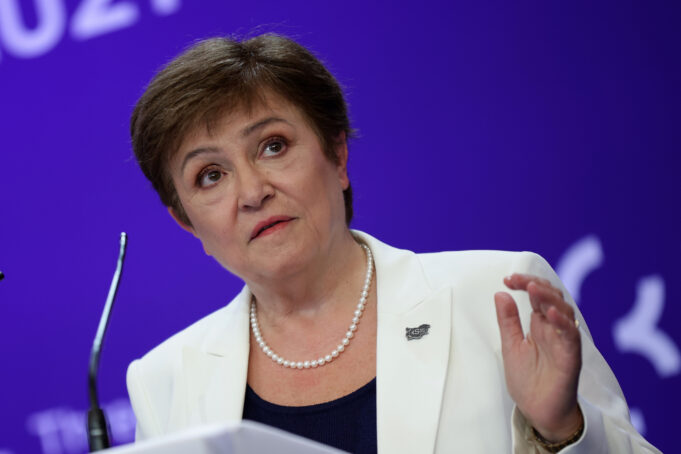In the dynamic setting of the cryptocurrency landscape, where both individual and institutional investors increasingly embrace digital assets Kristalina Georgieva, the Managing Director of the International Monetary Fund (IMF), remains a staunch skeptic of Bitcoin & Co. This article critically examines Georgievas perspective on cryptocurrencies particularly as retail investors from around the globe increasingly join the space. We explore the potential of digital assets and challenge Georgieva’s reservations within the context of evolving market dynamics.
Georgievas Critique on Cryptocurrencies
While Georgieva argues that cryptocurrencies should be considered an asset class rather than a form of currency, the recent surge in adoption presents a different viewpoint. In a landscape where decentralized finance (DeFi) platforms and non-fungible tokens (NFTs) capture the interest of enthusiasts, categorizing assets solely as speculative investments might overlook a broader narrative.
“Our view is that we have to differentiate between money and assets. When we talk about crypto, we are actually talking about an asset class. It could be backed up and in that sense, more secure and less risky, or it could be not backed up and, therefore, a riskier investment. But it is not exactly money. It’s more like a money management fund.”
IMF managing director Kristalina Georgieva told Yahoo Finance Live
Retail Boom and the Global Crypto Landscape
Contrary to Georgieva’s and the IMF’s cautious approach, it is undeniable that there has been a wave of retail investor interest in cryptocurrencies. Platforms like Robinhood have democratized access to digital assets, enabling investors to participate in the crypto market with unprecedented simplicity.
The recent surge in cryptocurrencies challenges the belief that they are exclusively for institutional investors.
Redefining Risks and Concerns
Although Georgieva expresses concerns about stability and monetary policy, it is important to recognize that the adoption of cryptocurrencies by investors has not only increased market liquidity but also attracted a diverse range of users. The growing resilience and adaptability of cryptocurrencies counterbalance the risks associated with volatility. The fact that the retail sector is embracing digital assets challenges the notion that these technologies are incompatible with everyday transactions.
The Retail-Driven Future of Cryptocurrencies
In light of events like the GameStop saga and the Dogecoin frenzy, it is clear that retail investors have an impact in shaping financial markets. The approval of spot Bitcoin ETFs further opens up opportunities for retail investors to participate in the space without ownership. It appears that the future of cryptocurrencies is increasingly influenced by the choices and preferences of consumers.
Reassessing Georgieva’s Perspective
As retail investors navigate the crypto landscape, it becomes crucial to question Kristalina Georgieva’s skepticism. The evolving narrative surrounding cryptocurrencies portrays them as more than investments aligning with efforts to democratize finance. While regulatory frameworks and stability remain considerations, recognizing and understanding the changing dynamics of the space is essential in realizing its full potential.
In summary, the growing popularity of cryptocurrencies contradicts Georgieva’s viewpoint on these assets. Cryptocurrencies are no longer just seen as an investment option. They are gaining traction among investors, causing significant changes in traditional financial systems. As digital assets capture the interest of the people, we must consider the factors that contribute to their adoption not only from institutional sources but also from the ever-evolving world of retail investors.
Read more: Who Is Calling the Shots at JP Morgan? Jamie Dimon Or …?











[…] Read more: Crypto’s Mass Appeal Challenges Traditional IMF Views […]